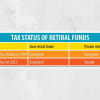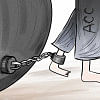Income Tax Act 2023 and compliance challenges for companies

The Income Tax Act 2023 came into effect in June. The law, which replaced the Income Tax Ordinance 1984, has received appreciation from various quarters. At the same time, it has created some concerns among finance and tax professionals regarding compliance challenges.
Based on my review of the income tax law and discussion with finance and tax professionals, I figured out some challenges in the implementation of the law. Here are some of the major issues that require wider discussion:
Disallowance of expenditure
The income tax law 2023 says expenses of an assessee or taxpayer will be disallowed by tax officials if the taxpayer fails to collect the proof of submission of tax return (PSR). But Bangladesh's economy is yet to be formalised. A large portion of the economy is informal, and in many cases, suppliers do not even accept cheques let alone PSR.
Under the circumstance, an assessee has to count the tax deducted at source (TDS) and pay from their own fund to avoid the risk of disallowance. Now, this will still be required to avoid penal risk from TDS.
Yet, this will not be enough to mitigate the significant risk of disallowance due to a lack of PSR. There are some autonomous bodies where a company is required to pay fees for business purposes. These autonomous entities still do not have electronic tax identification numbers. Hence, the cost of doing business is expected to rise substantially unless steps are taken to collect PSR in the mandatory areas.
There are some good parts of PSR too which one cannot ignore.
The number of tax return filers increased to 36 lakh in the assessment year of 2022-23 and PSR was the major driver behind the growth.
Now, the government needs to take some initiative to ensure proper compliance with the law. The tax authority can arrange stakeholders' awareness campaigns so that all are aware of this provision, discuss with other government entities so that they get registered, and update the electronic verification database for PSR verification so that all tax returns can be verified online.
Salaries thru banking channel
Previously, a business entity could provide a salary not exceeding Tk 20,000 through cash. The Income Tax Act 2023 has repealed the provision.
With the massive expansion of mobile financial service (MFS), it would not be so hard to implement it. But the government should ask MFS providers to reduce their charges for the marginal income earners so that their net earnings don't get affected by the charges since the fees may be borne by companies.
Tax exemption
An assessee will have to file the tax return within Tax Day, otherwise, a 4 percent monthly simple interest will be imposed on the person. Moreover, a 15 percent simple interest will be imposed on the shortfall of advance income tax.
The taxpayer will not be entitled to enjoy the tax on the income, benefit of reduced tax rate and tax rebate. Hence, this provision is expected to increase compliance culture.
We all talk about our low tax-GDP ratio but don't specify any real solution. The PSR has proved its worth already.
The National Board of Revenue should also address the real limitations, if any, as early as possible. Increased tax filers will surely ensure a level playing field and increase the tax net.
The writer is managing director of SMAC Advisory Services Ltd

 For all latest news, follow The Daily Star's Google News channel.
For all latest news, follow The Daily Star's Google News channel. 







Comments